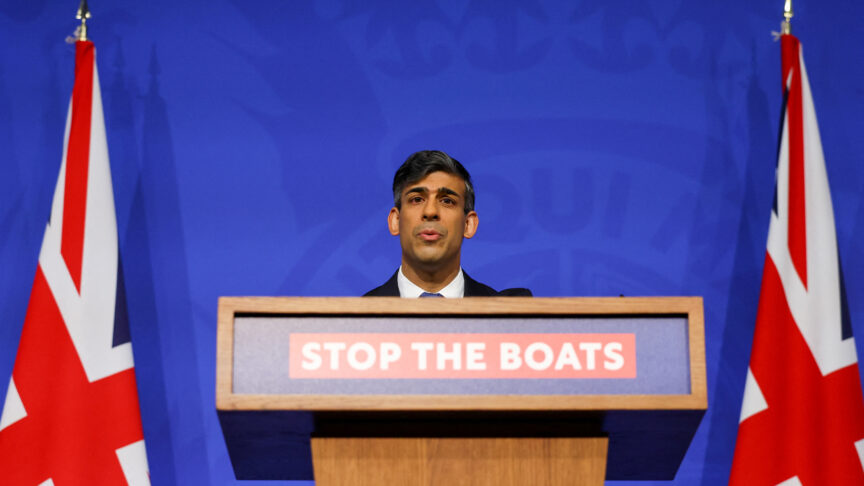Trump’s meaningless NATO spending debate
Europeans spending more on defence will not satisfy Donald Trump. Here’s why
As in a bad marriage, the arguments of US President Donald Trump and his European partners have descended into a sort of ritual exchange. So at this week’s NATO summit, we can be confident that Trump will complain about the lack of European defence spending and threaten to leave Europe if the NATO allies don’t stump up. The Europeans will accept the premise of his argument, point to what they have recently achieved, and pledge to do more.
Rinse and repeat.
The whole affair has the structure of an Apprentice episode. We don’t know what crazy shit Trump will say during the show, but we know how it will end.
Such burden-sharing debates are traditional at NATO meetings. The main difference now is that Trump has an advantage in pushing Europeans to spend more relative to past US presidents. Because he doesn’t care about the transatlantic alliance, he can more credibly threaten to withdraw the US security blanket from Europe. And because Europeans still rely on US security guarantees for their defence, they feel that they simply can’t risk it and so do their best to satisfy his demands.
It is a reasonable response. European and American experts alike, including Trump’s staunchest foes, admit that the president has a point and that Europeans should spend more on defence. They often note that every US administration since the 1950s has a made a similar demand of the Europeans. And so the hope is that if Trump’s gonzo tactics get the allies to finally open their coffers, the alliance will be better off for the effort.
Money for nothing
Alas, those who would advise Europeans to accede to Trump’s demands are not really paying attention to what Trump says he wants and how he operates. Sure, there are good reasons for Europeans to spend more on defence (though even here the issue is really spending more wisely rather than spending more.) But regardless, there is no satisfying Trump’s demands about European spending.
The European response to Trump’s histrionics over spending is nearly irrelevant to how his administration will treat the alliance. In fact, we have already seen a fair degree of effort to respond to Trump’s critique. European defence spending is creeping up – 27 of 28 members of NATO are now increasing their defence spending, eight will meet the 2 percent target this year, and 16 countries are on track to meet it by the agreed date of 2024.
Trump could simply declare victory, claim that he has achieved what all past presidents (particularly Barack Obama) had failed to do, and go home, leaving NATO to go about its boring daily routine defending of Europe and supporting America’s wars abroad. But he probably won’t.
Trump wants to use defence spending to gain concessions on what really matters to him: reducing the American trade deficit.
It seems clear at this point that Trump does not want to solve the burden-sharing problem. On the contrary, he wants to use Europeans’ collective sense of guilt over their lack of spending, as well as the European fear of American abandonment, to gain concessions on what really matters to him: reducing the American trade deficit. Indeed, at the summit, he may explicitly link a continued American security guarantee with economic concessions from Europe.
Trump’s focus on trade means that Europe cannot conceivably meet his demands on defence spending. If the Europeans parked a brand-new aircraft carrier off the coast of Mar-a-Lago and tossed the keys onto the 18th green, Trump would simply charge them greens fees. In the end, he doesn’t believe in the idea that America should defend Europe, so why should the United States pay anything at all? He is only interested in it if it brings in a profit.
So every time Europeans respond to his repeated blandishments on defence spending with new pledges to pay more, he seems to grow ever more sure that he is on to something and doubles down on his critique. One feels confident at this point that such critiques will persist at least as long as the US trade deficit with Europe.
Appeasing a bully
Appeasement of Trump’s bullying is not the right strategy. Of course, Europeans need to get their house in order in defence. But that effort has little to do with symbolic defence spending targets and even less to do with the impossible task of satisfying Trump. Rather, they should focus on creating a truly independent defence capability. That effort probably does involve more spending, but more importantly it means creating a European military capability that can stand on its own. Such a capability will allow the Europeans to negotiate with Trump, and future American presidents, from a position of equality.
To persist in the long term, the transatlantic alliance needs equality in negotiation much more than it needs equality in spending. The NATO alliance does not depend on equal burdens, which it has never had; it depends on solidarity. And solidarity only comes when both sides are getting what they need and feel they are being treated fairly. Effective bullying can perhaps create some wasteful defence spending, but it cannot create a new transatlantic bargain that will preserve that essential solidarity.
The European Council on Foreign Relations does not take collective positions. ECFR publications only represent the views of their individual authors.


